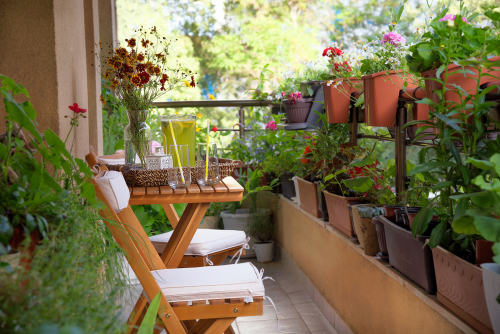
Balcony gardening is a popular way for urban dwellers to bring a touch of greenery into their living spaces. With limited outdoor space, balconies offer the perfect opportunity to create a small oasis of plants and flowers. Whether you have a green thumb or are just starting out, balcony gardening can be a rewarding and enjoyable hobby.
What are the Benefits of Balcony Gardening?
1. Fresh Air: Plants on your balcony can help improve air quality and create a more pleasant environment.
2. Stress Relief: Gardening has been shown to reduce stress and promote relaxation.
3. Aesthetic Appeal: Balcony gardens can enhance the look of your outdoor space and add a pop of color.
How to Get Started with Balcony Gardening? Here are our 12 Tips for Starting Your Own Balcony Garden.
:max_bytes(150000):strip_icc()/vegetable-and-flower-plants-on-balcony-1407305500-342c4317b8574819a7131409529c6146.jpg)
1. Assess Your Space:
When it comes to growing plants on your balcony, assessing the space is crucial for success. Follow these expert tips to maximize your balcony's potential for plant growth.
Light Exposure
Start by evaluating the amount of sun exposure your balcony receives. Most plants require a minimum of 6 hours of direct sunlight per day to thrive. Take note of any areas that receive indirect sunlight as well, as some plants can tolerate lower light levels.
Space Requirements
Consider the space available on your balcony for plant containers. Measure the area to determine how many pots or planters you can fit comfortably. Make sure there is enough room for plants to grow without overcrowding.
Heat and Wind Exposure
Take into account the heat and wind conditions on your balcony. Some plants may be sensitive to strong winds or excessive heat, so choose varieties that can tolerate these conditions. Consider using windbreaks or shade cloth to protect your plants if necessary.
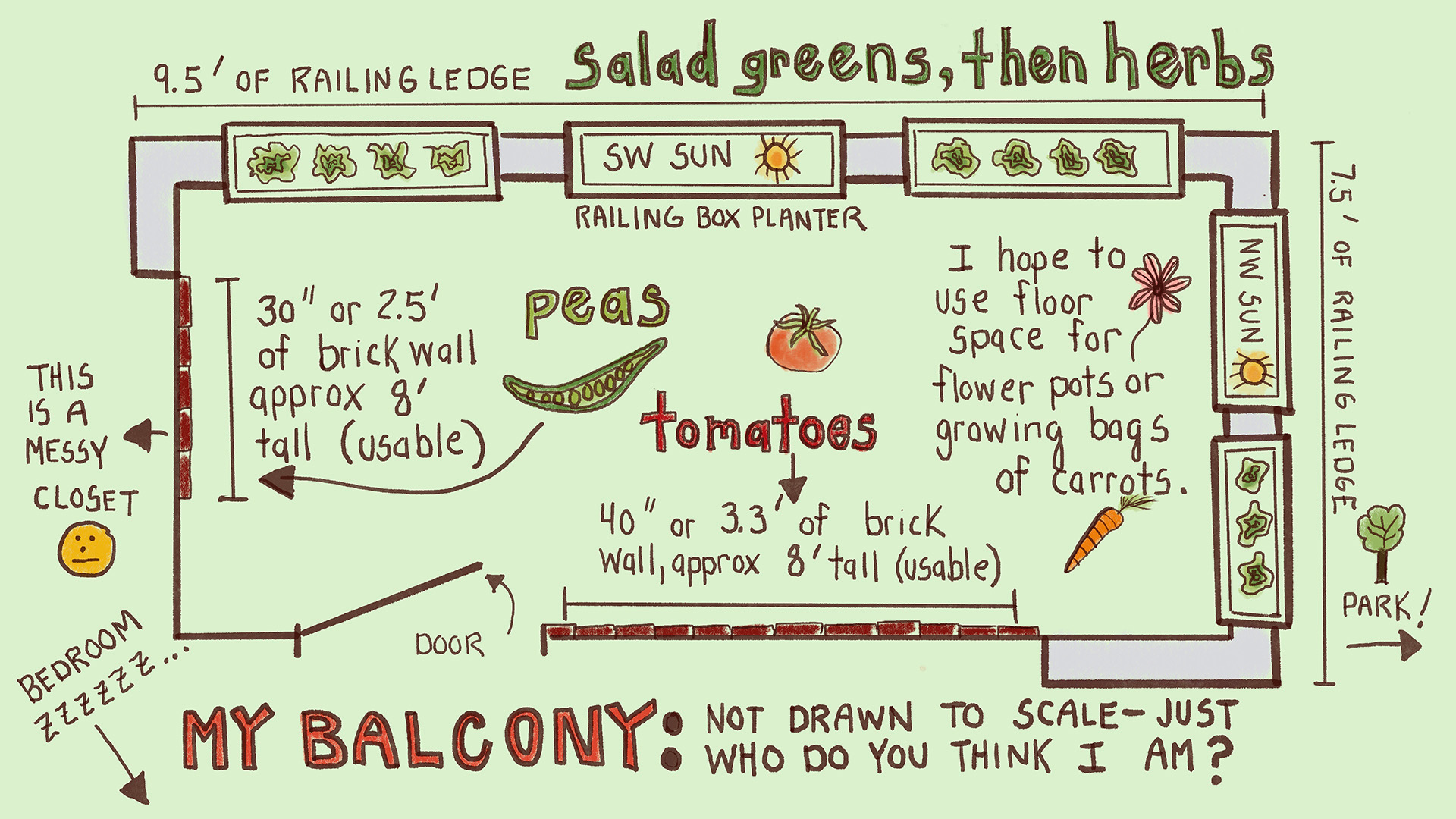
2. Choose the Right Plants:
When it comes to creating a beautiful and thriving balcony garden, selecting the right plants is crucial. Whether you have a green thumb or are just starting out, choosing plants that are well-suited for your balcony's environment can make all the difference in the success of your garden.
Discover the Easiest-to-Grow Plants for Your Balcony:
For beginners or those with limited time to dedicate to gardening, choosing easy-to-grow plants is essential. Succulents, such as aloe vera and jade plants, are low-maintenance and can thrive in small spaces like balconies. These plants require minimal watering and care, making them perfect for busy individuals.
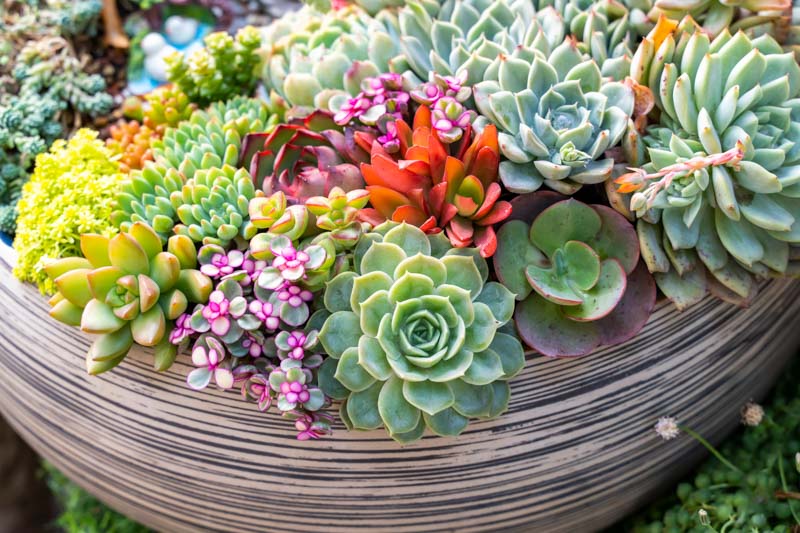
Maximize Plant Growth with Strategic Companion Planting Methods.
Companion planting is a gardening technique where certain plants are grown together to benefit each other. For example, planting marigolds alongside tomatoes can help repel pests and improve the overall health of the plants. Consider companion planting to maximize the success of your balcony garden. Conduct research on the plants you plan to cultivate and create a planting map before starting.
For more information on companion planting, click here.

3. Gather Supplies:
Make sure you have all the necessary supplies on hand before starting your balcony garden. This includes soil, fertilizer, pots, watering cans, and any other tools you may need.
Remember, you will require different equipment for each stage of your garden's growth, from seed-germination tools to harvesting equipment.
Shop our gardening collection here.
4. Use the Right Containers
Opt for containers that are the right size for the plants you want to grow. Make sure they have drainage holes to prevent waterlogging and root rot. Ensure that the pots are the right size for the plants you are growing and that they are made of materials that can withstand outdoor conditions.
For the initial seed-germinating process, we recommend using the Jiffy Pro Greenhouse with Peat Pellets which will create the perfect warm environment for young seedlings.
As your balcony plants grow larger, we recommend sturdy outdoor balcony planters made for this job, such as Burlap Bags and Self-Watering Pots.
5. Work Vertically
Vertical gardening involves growing plants upwards rather than outwards. This can be achieved through the use of trellises, hanging planters, wall-mounted planters, and other creative solutions. By utilizing the vertical space on your balcony, you can significantly increase the amount of greenery you can cultivate.
:strip_icc()/upcycled-metal-ammunition-box-herb-garden-cf4bcd38-56a200cdf321405c818ac0f525a6715c.jpg)
6. Add Vining Plants
A key element of working vertically includes planting some vining plants. These plants can climb trellises or railings, maximizing your space and adding a lush, green backdrop. Moreover, vining plants create a natural privacy screen by shielding your balcony from prying eyes.
3 Easy to Grow Vining Plants
Consider adding these vining plants from our collection to your balcony garden:
1. Nasturtium: the blooms on this vining plant glow in deep jewel tones throughout the summer, shining like sparkling gems in your garden. Its flowers and leaves are edible and it attracts beneficial insects while its aromatic foliage can deter pests. Shop our Dwarf Jewel Nasturtium Seed Mix here.
2. Cucamelon: also called Mexican Sour Gherkin or Pepquino melon, it produces 2″ long small cucumbers that look like miniature watermelons. They have the sweet cucumber flavor, followed by a surprising sourness, perfect for making tiny sweet pickles! Shop Cucamelon Seeds here.
3. Morning Glory: this plant produces gorgeous deep-purple and light pink colour flowers that are funnel-shaped with a red star in its throat. Shop Morning Glory Seeds here.
7. Understand the Differences: Annuals vs. Perennials in Gardening
What are Annuals?
Annual plants complete their life cycle in one growing season. This means they sprout, bloom, produce seeds, and die all within a year. Annuals are known for their vibrant colors and are perfect for adding a pop of color to your garden. They are easy to grow and are great for filling in gaps in your garden quickly.
What are Perennials?
Perennial plants, on the other hand, live for multiple growing seasons. They typically go dormant in the winter and come back to life in the spring. Perennials are known for their longevity and can provide years of beauty in your garden. They are a great investment for a lasting garden landscape.
Choosing the Right Plants
When planning your garden, consider incorporating a mix of annuals and perennials. Annuals can fill in spaces while perennials establish themselves. You can also mix in edible plants, succulents, and companion plants to create a diverse and thriving garden ecosystem.
Read more on annual and perennial planting here.
:max_bytes(150000):strip_icc()/difference-between-perennials-annuals-garden-getty-0323-2000-02252882bad040a3a57792d94f9e7a23.jpg)
8. How to Grow Herbs on your Balcony
Herbs are not only a beautiful addition to your balcony, but they also serve a practical purpose. Fresh herbs can elevate your culinary creations with their vibrant flavors and aromas. By growing your own herbs, you can ensure that they are organic and free from harmful pesticides.
Choosing the Right Herbs
When selecting herbs to grow on your balcony, consider the amount of sunlight your space receives. Herbs like basil, mint, and parsley thrive in sunny conditions, while herbs like chives and cilantro can tolerate partial shade. Choose herbs that you frequently use in your cooking to make the most of your garden.
Harvesting and Pruning
Harvest your herbs regularly to encourage new growth and prevent them from becoming leggy. Use sharp scissors to snip off the top leaves, leaving the lower leaves intact. Pruning your herbs will help them stay bushy and productive throughout the growing season.
Shop all Scrim's Herb seeds here.

9. Guidelines for Growing Fruit and Vegetables on your Balcony
If you have enough space and sunlight, consider growing your own fruits and vegetables on your balcony. Fresh produce right at your fingertips!
Selecting the Right Plants
Choose fruits and vegetables that are well-suited for container gardening. Some great options include tomatoes, peppers, strawberries, herbs, and leafy greens like lettuce and spinach. Avoid plants that require a lot of space to spread out, such as pumpkins or watermelons.
Shop all Scrim's Fruit and Vegetable seeds here.
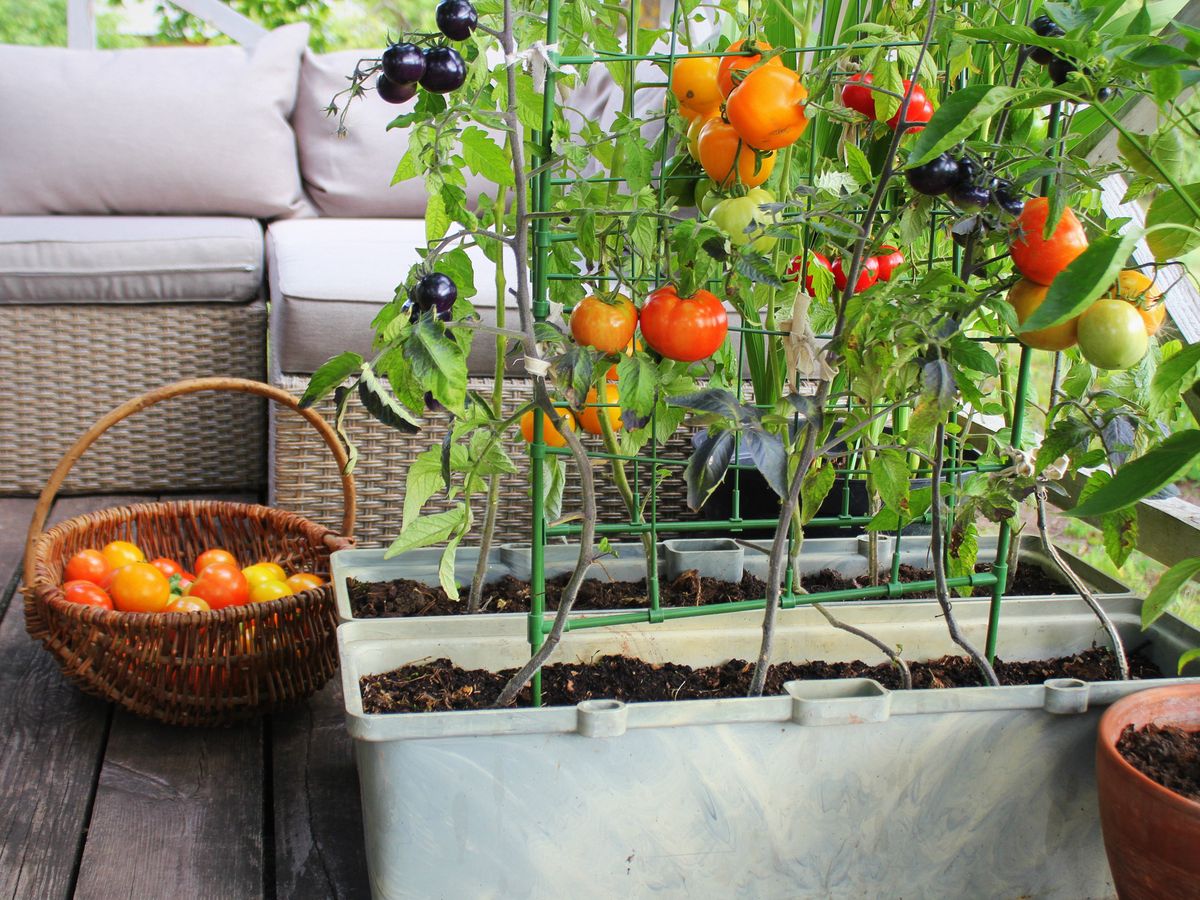
Provide Nutrients
Consider using a fertilizer to ensure your fruiting plants get the nutrients they need. The NPK ratio on a fertilizer label indicates the percentage of nitrogen, phosphorus, and potassium in the product. Different stages of plant growth require varying levels of these nutrients. For example, a fertilizer with a higher nitrogen content is suitable for leafy greens, while a higher phosphorus content benefits fruiting plants.
We at Scrim's recommend the organic Acti-Sol Fertilizer, which is derived from hen manure and is balanced specifically for vegetable gardens.
Monitor for Pests and Diseases
Keep an eye out for common pests like aphids, spider mites, and caterpillars that can damage your plants. Regularly inspect your plants for any signs of disease, such as yellowing leaves or mold. Consider using natural pest control methods or organic pesticides to protect your plants.
10. Prune and Deadhead Your Plants
Regularly prune your plants to promote growth and remove dead or damaged leaves. Deadhead flowers to encourage more blooms and keep your balcony garden looking tidy.
What is Pruning?
Pruning is the process of selectively removing certain parts of a plant, such as branches or stems, to shape the plant, remove dead or diseased areas, and encourage new growth. It is important to use sharp, clean tools when pruning to prevent damage to the plant.
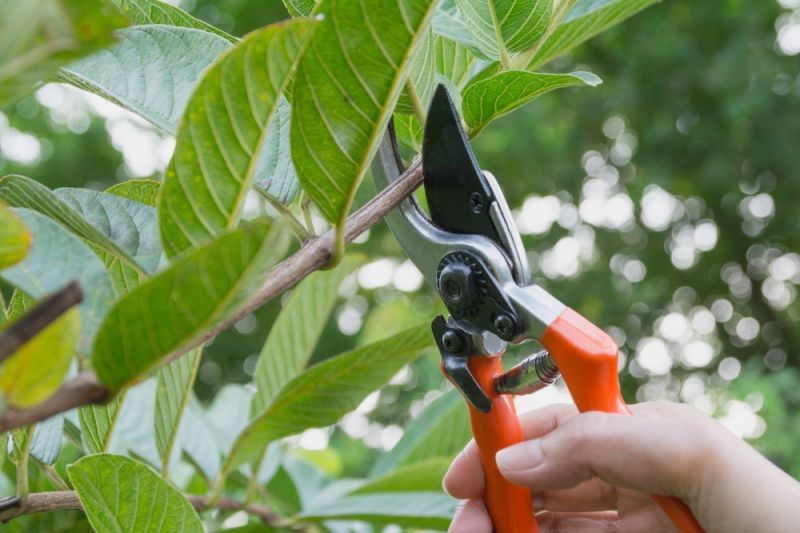
Why is Deadheading Important?
Deadheading is the practice of removing spent flowers from a plant to encourage the production of new blooms. By deadheading regularly, you can prolong the flowering period of your plants and keep them looking fresh and vibrant throughout the season.
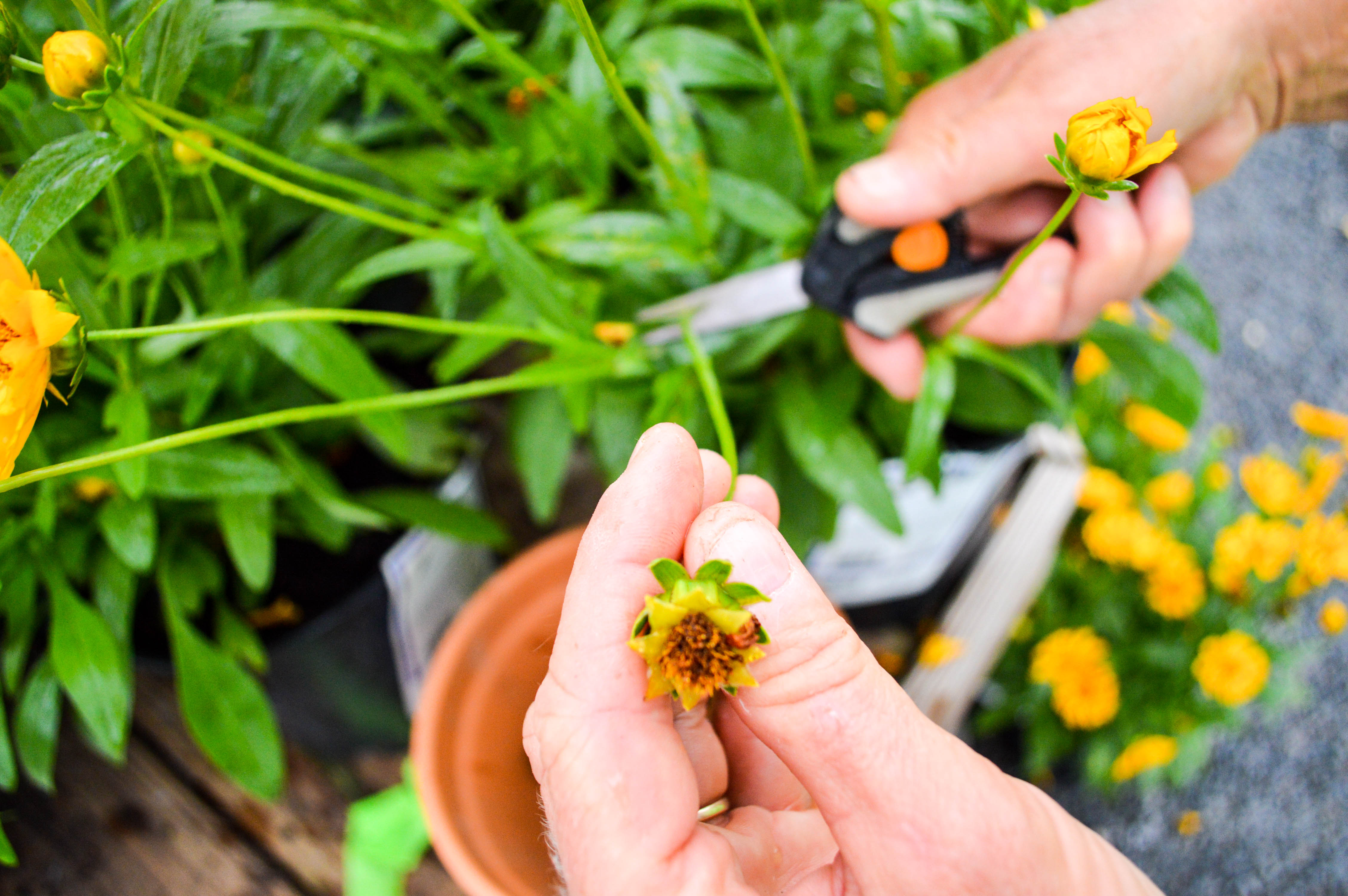
When to Prune and Deadhead?
It is important to prune and deadhead your garden plants at the right time to avoid damaging the plant or inhibiting growth. Generally, it is best to prune in late winter or early spring before new growth begins. Deadheading can be done throughout the growing season as needed.
11. Stay Consistent
Consistency is key to a successful balcony garden. Stick to a regular watering and maintenance schedule to keep your plants healthy and thriving. Fertilize as needed, and keep an eye out for any pests or diseases that may affect your plants.
12. Enjoy the Process
Research has shown that gardening can reduce stress levels and improve overall mental well-being. In fact, a study conducted by the University of Bristol found that gardening can reduce the risk of developing depression by 30%. Additionally, spending time outdoors and getting your hands dirty can boost your mood and increase feelings of happiness.
Starting a balcony garden is a journey that can be both challenging and rewarding. Enjoy the process of nurturing your plants and watching them grow and flourish in your own outdoor oasis.
At Scrim's, we'd be happy to help you begin your balcony gardening journey! Contact us here or call us at 613 232 1733.
